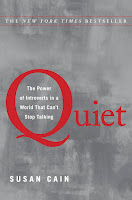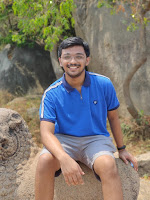What is all this?
Hello! I'm Hariharan, a Computer Science undergraduate at IIT Madras. For my fifth semester, I took up Soft Skills development (MS4100) as a course. As part of the course, we have been asked to maintain a blog about the course and our learnings weekly. And so here I am...writing this for my first week.
Why'd you take Soft Skills Development?
In essence, I looked at the mirror and saw a one-dimensional person.
Over these years, I have thrived. That is, by the most traditional sense of academics: exams.
But there are only a handful of interests I possess outside of academics. And for most parts, I have lacked the courage and willpower to pursue even those. Even within the engineering domain, I have shied away from technical projects because of my arresting fear of failure.
My reliance on parents and teachers means I connect well with mentors. But on the flip side, I am cripplingly dependent on external gratification. Thus, I have struggled to develop some sort of personal independence and self-esteem.
The one positive takeaway is that I'm acutely aware of my shortcomings. And for years, I've been a "self-help junkie", as people call it. First books, like 7 Habits of Highly Effective People and Drive, and later YT channels like Better Ideas and Thomas Frank.
So when I first found out about Soft Skills development, I knew I had to register. The course was on many of the topics I needed. But instead of having to go it alone, I'd be mentored by professionals and would have a group of fellow-minded students to discuss with. It was almost too good to be true!
What exactly are you looking for in the course?
If I had to say one thing only, it'd be building up self-esteem.
In the course pre-survey, I had written self-confidence, but Viji (ma'am, but she doesn't want to be called that 😅) pointed out those two are different. Self-confidence is more temporary, dependent on the work you're doing and the situation you're in. Meanwhile, self-esteem is the overall sense of confidence and value one has in themselves as a person. This is more long term and not directly related to immediate work.
It was then I realized that most of my self-talk was based on dealing with lapses in self-confidence, but the root cause was low self-esteem. Without dealing with the latter, I'd just be playing a game of whack-a-mole whenever some challenge comes up.
A close second would be finding meaning. (This is why I'm particularly eager for the sessions on Ikigai)
So far, I've been running well-worn tracks. My family, particularly my generation, is filled to the brim with engineers, so there is a lot of life experience to learn from. And while I'm very privileged and grateful for this, it also means I need to be just that more proactive to go out, explore on my own, find my long-term drive, and maybe, just maybe, take a less-traveled path.
Two other elements of the course I appreciate are mentoring and working on communication.
As IITians, our outlook on the outside world is far too skewed, and perhaps a touch entitled. So to be able to connect with certified coaches will help ground us, as well as open our eyes to new opportunities. Given that our exposure has been curtailed due to the seemingly never-ending pandemic, this element of the course because so much more valuable this year.
So, what did you take away from the first week?
Firstly, that the term "soft skills" is a gross understatement of the importance of non-technical values and skills in the modern world.
We work within a system that gives first priority to proficiency in mechanical skills and raw aptitude. However, this system was developed over a hundred years ago at the height of the Western world's industrial revolution. At that time, it made sense: there was a pressing need for a disciplined and skilled workforce to work in the fields and handle the machinery of factories.
However, while our education system has stayed the same, the modern work setting couldn't be more different. Most monotonous and purely skill-based work has or will be replaced by autonomous machines. The work of today is more abstract. It involves thinking outside the box. One cannot merely operate on their own and must collaborate with others. The work is also multi-dimensional, and we must adapt and improvise at a moment's notice.
"Soft skills", such as adaptability, leadership skills, communication, critical thinking, are highly valued in today's workforce, but noticeably absent in any curriculum. And that is what this course wants to bridge.
We also talked about the T shaped skillset:
The idea of a T-shaped skillset was pretty simple: one must hold an overview of many fields, to be agile and adaptable. But at the same time, such a person must a deep practical and theoretical knowledge in one or two fields (s)he specializes in, to maintain technical expertise.
Finally, we talked about the tagline of the course, highlighting the various areas we'd focus on during the course and their importance.
Towards Meaning & Purpose, Flow, Intent of Perfection, Attitude of Excellence, Fulfillment in Life & Work
- Meaning & Purpose: Do I believe I will find the meaning of my life right away? Absolutely not. My life has just begun at 20, and it'd be naive to "lock in" my purpose so soon. Rather, I hope that the course provides a holistic framework with which I can introspect when searching for meaning or feeling lost in the journey of life.
- Flow: Finding the work that takes us into our flow state; that is, areas of work we find so interesting that we lose track of time. It's just the right difficulty to be stimulating as well: not too easy and boring, nor too difficult and devastating.
- Intent of Perfection and Attitude of Excellence: To be ready and able to put in our best work in whatever we do, and healthy competition to be the best version of ourselves.
- Fulfillment in Life and Work: Doing work that you are passionate about, and serves a tangible purpose for yourselves and others.
So, is this blog just for the grade?
Absolutely not!
Most side hobbies I have had revolved around my passion for expressing myself, and the two primary outlets I have been fascinated with are Debating and Blogging/Vlogging.
I had played around with blogging in high school, which culminated in bringing a group of friends together to start a Football blog. The blog sputtered out in a few months (its last remaining vestiges can be found on Facebook here), but nevertheless, that might be my most cherished memory of high school.
Since joining college, I have been part of the Oratory Contingent to scratch my debating itch, but I never really reignited my interest in blogging. Well, until now!
If all goes well, I'd love to keep this blog active beyond my stay in MS4100 Soft Skills Development, and hopefully help others who, like me, could use some clarity when starting out in life.
Cheers,
KR Hariharan








